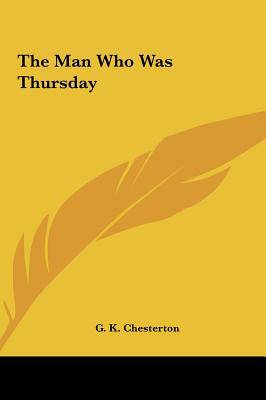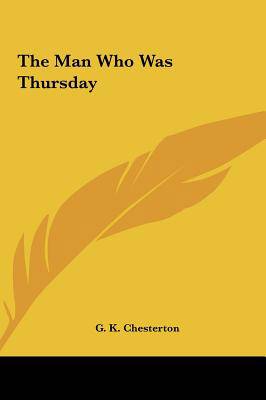
- Afhalen na 1 uur in een winkel met voorraad
- Gratis thuislevering in België vanaf € 30
- Ruim aanbod met 7 miljoen producten
- Afhalen na 1 uur in een winkel met voorraad
- Gratis thuislevering in België vanaf € 30
- Ruim aanbod met 7 miljoen producten
Zoeken
€ 52,95
+ 105 punten
Omschrijving
The Man Who Was Thursday is a novel written by G.K. Chesterton. It tells the story of Gabriel Syme, a poet turned detective, who is recruited by a secret anti-anarchist organization to infiltrate a group of seven anarchists, each named after a day of the week. Syme is given the code name ""Thursday"" and is tasked with uncovering the group's plans to bring about chaos and destruction in London.As Syme becomes more involved with the anarchists, he begins to question their true motives and the intentions of his own organization. He discovers that the group's leader, Sunday, is not what he seems and that the entire operation may be a complex trap designed to ensnare him.The novel is a thrilling and thought-provoking exploration of the nature of good and evil, the dangers of extremism, and the power of deception. Chesterton's writing is both poetic and philosophical, and the book has been praised for its intricate plot, vivid characters, and its ability to keep readers guessing until the very end.""Excuse me if I enjoy myself rather obviously!"" he said to Gregory, smiling. ""I don't often have the luck to have a dream like this. It is new to me for a nightmare to lead to a lobster. It is commonly the other way.""This scarce antiquarian book is a facsimile reprint of the old original and may contain some imperfections such as library marks and notations. Because we believe this work is culturally important, we have made it available as part of our commitment for protecting, preserving, and promoting the world's literature in affordable, high quality, modern editions, that are true to their original work.
Specificaties
Betrokkenen
- Auteur(s):
- Uitgeverij:
Inhoud
- Aantal bladzijden:
- 158
- Taal:
- Engels
Eigenschappen
- Productcode (EAN):
- 9781161470109
- Verschijningsdatum:
- 23/05/2010
- Uitvoering:
- Hardcover
- Formaat:
- Genaaid
- Afmetingen:
- 178 mm x 254 mm
- Gewicht:
- 494 g

Alleen bij Standaard Boekhandel
+ 105 punten op je klantenkaart van Standaard Boekhandel
Beoordelingen
We publiceren alleen reviews die voldoen aan de voorwaarden voor reviews. Bekijk onze voorwaarden voor reviews.











